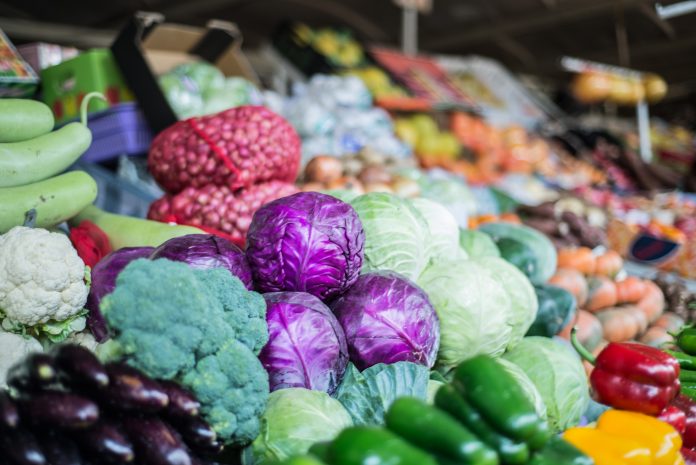Last night, MPs voted 322 to 261 against measures championed by Marcus Rashford to extend free school meals for vulnerable children on the breadline
The suggested extension for free school meals until Easter 2021 was voted down yesterday (21 October), by 322 to 261 following a feisty debate. Scottish Conservatives supported the Labour vote in favour of free meals. The result of the vote has drawn criticism from unexpected points of the political spectrum, with far-right individuals like Nigel Farage openly supporting the need to extend free school meals.
MP Kate Green, Shadow Education Secretary, commented: “Today’s proposals are not a silver bullet, and they will not end child poverty. They are a sticking plaster, but one that is badly and urgently needed. Needed by the 1.4 million children who could go hungry without them.”
In response, Gavin Williamson, Secretary of State for Education, said: “Schools are now fully operational following the COVID-19 outbreak, and will continue to offer free school meals in term time.”
Alex Wickham of Politico London, pointed out the attack strategy from Government was to say that Labour had not previously instilled these measures:
Leaked memo shows Tory whips have emailed their MPs asking them to make “suggested interventions” in the @marcusrashford free school meals debate… one “key political point is that Labour didn’t offer free school meals during holidays while in govt pic.twitter.com/4sgkCOP3G4
— Alex Wickham (@alexwickham) October 21, 2020
This rejected proposal comes in the wake of a highly tense negotiation between Central Government and Greater Manchester, on the exact amount of funding necessary to see the region through the closures of businesses and resultant loss of minimum wage jobs. Currently, the discussions are at an end, with only an allocation of 22 million for Test and Trace upgrades agreed upon. The remaining 60 million has been promised to local councils within the region, but not discussed in detail with MPs or the Mayor.
In March 2019, there were over 600,000 people living in poverty in the region. This relatively low sum has created severe concerns in the city, especially in relation to the expected rise in food insecurity and the losses of jobs that will result in a tighter household budget.
Speaking on Twitter yesterday, with a lived experience of food insecurity throughout childhood, Marcus Rashford said:
“We must stop stigmatising, judging and pointing fingers. Our views are being clouded by political affiliation. This is not politics, this is humanity…
“I don’t have the education of a politician, many on Twitter have made that clear today, but I have a social education having lived through this and having spent time with the families and children most affected. These children matter.”
What is food insecurity?
The UK cannot define hunger in a concrete way – instead, we use the measurement of food insecurity. Food insecurity is a limited access to food, due to lack of money or other resources. This can range from access to fresh fruit and veg, to access to a whole meal. These problems are often conceptualised as belonging to ‘developing’ nations, but the UK is the fifth richest country in the world and experiences a striking level of child hunger.
According to a 2018 report by the Food and Agriculture Organisation (FAO), four million people across the UK are living in situations of moderate to severe food insecurity. Two years ago, that was the highest reported level in Europe. With the economic impact of the pandemic still rippling across the country, this level is predicted to increase.
No ‘proportionate solution’
One of the United Nations’ many Sustainable Development Goals is fighting hunger, food insecurity and malnutrition. A report written by UK stakeholders in 2018 suggested that obesity was the only food issue that the Government were facing up to:
“DEFRA’s Single Departmental Plan does not include a measure for food insecurity and the Department of Health and Social Care’s plan focuses solely on obesity. This limits Government’s awareness of the prevalence of food insecurity in the UK and prevents it appropriately reporting on SDG2 and implementing a proportionate solution to tacking the problem.”
With no proportionate solution currently in sight, how is the UK doing on all other aspects of SDG2? According to the report, all food-related human rights issues remain in amber or red status, with the former meaning an incomplete level of policy, and the latter signifying a substantial lack of policy.
While the furlough scheme instilled in Spring and the extension of Free School Meal vouchers helped to protect many children from the severe consequences of going hungry, currently there are a huge number that fall outside the protections offered by both soon-to-be expired measures.
On last night’s free school meals vote, our CEO @alisongcpag said: “We’ve reached a low point if in the midst of a pandemic we decide we can’t make sure children in the lowest-income families have a nutritious meal in the middle of the day… 1/2
— Child Poverty Action Group (@CPAGUK) October 22, 2020
‘Critical periods for growth and development’
Education has long been lauded as a way to ascend from a life of struggling on the breadline, but with the inevitable lack of concentration and household stresses that come with not having enough food – how can children engage in their escape mechanisms?
“Infancy and childhood are critical periods for growth and development, and good nutrition is important to obtain the best outcomes,” says Professor Mary Fewtrell, Nutrition Lead at the Royal College of Paediatrics and Child Health.
“Poor diet can also lead to lower concentration and impact educational attainment.”











